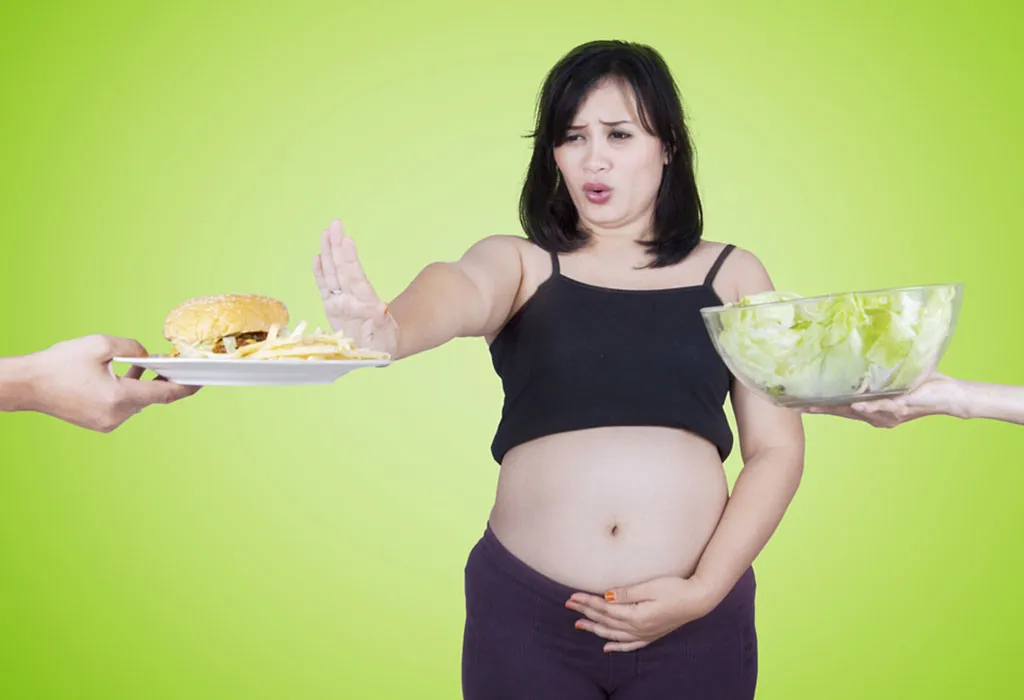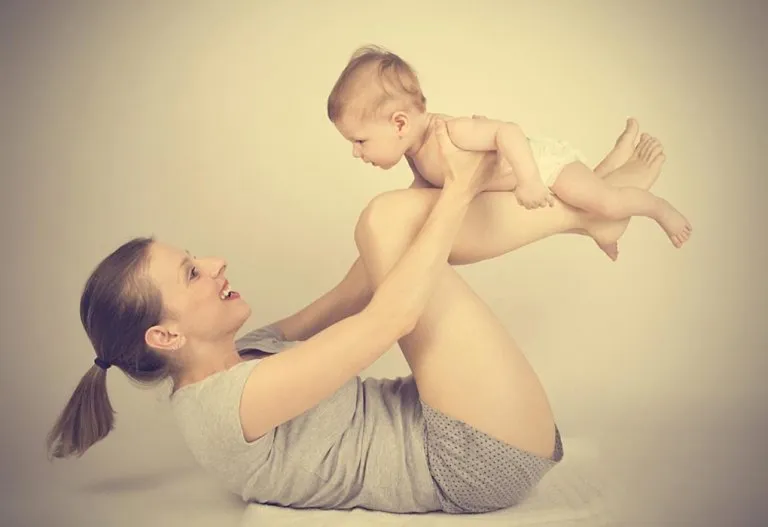How to Lose Weight During Breastfeeding?

- Is It Safe if You Are Trying to Lose Weight While Breastfeeding?
- When to Start Losing Weight While Breastfeeding
- Different Ways to Lose Weight When Breastfeeding
- Healthy Diet for Weight Loss
- When to Consult a Doctor
- FAQs
Extra nourishment and lack of physical activity often lead to weight gain during pregnancy. After delivery, shedding those extra kilos becomes a priority for most women. One natural way some mothers experience weight loss is through breastfeeding, which can burn extra calories. However, the next task at hand is ensuring your baby gets all the necessary nutrition in the first few months after birth. In the initial months, the only source of nutrition for the baby is the mother’s breast milk. Therefore, it is crucial for the mother to continue eating nutritious food, as going on a diet is not an option. Read on to learn more about breastfeeding weight loss and the fastest way to lose weight while breastfeeding.
Is It Safe if You Are Trying to Lose Weight While Breastfeeding?
A planned weight reduction program is safe even when you are breastfeeding. Having a sudden drop in weight is not recommended and a gradual, phased out decrease is ideal. The best way to reduce weight is by adopting a healthy lifestyle, consuming low-fat food, and following a moderate exercise routine on a daily basis. Breastfeeding also aids in stimulating weight loss, as the body will use your stored energy in fat to make milk for the baby.
Proper nursing combined with a balanced diet and exercise will help in the reduction of weight without having any impact on the quality or quantity of the milk to be fed to the baby. Breastfeeding and weight loss can go hand in hand.
When to Start Losing Weight While Breastfeeding
Having a baby and managing your priorities during the first few weeks after delivery can be challenging, as your munchkin will need extra care. At this point in time, losing weight while nursing should not be worrying you. The excess weight has been put on over a period of nine to ten months and you should give it at least that much time to shed those extra kilos away.
You can wait for around six weeks after delivery to kick start your weight reduction regime. The initial six weeks can be considered as a transition period where the baby and the mother are trying to adapt to the changes in their life. It is important to focus on the baby at this time and not get distracted by any other activity.
Different Ways to Lose Weight When Breastfeeding
Weight reduction after pregnancy needs to be systematic and well-planned. Given below are some tips on how to lose post-pregnancy weight fast while breastfeeding:
1. Adopt a Moderate Exercise Routine
Start off with exercises which are not too taxing and heavy on the body. Develop an exercise routine that includes light walking for 20 to 30 minutes along with your baby. Increase the intensity of your exercises gradually. However, be cautious and do not burn too many calories while you are breastfeeding.
2. Do Not Cut Down on Food Intake
Starving yourself might reduce your weight instantly, but it will also make you weak from the inside and reduce the production of milk. Consult your dietician and draw up the right diet that caters to your daily needs. Dieting can also affect your milk production, so make sure you do not follow a strict diet. Eat healthy foods and avoid unhealthy food – this way you won’t put on weight.
3. Drink Water
Drinking plenty of water is a good way to keep a tab on your weight. Water will aid in the digestion process and also remove toxins from the body. It is important to stay hydrated while you are breastfeeding. Water will help you do just that. It will also fill your tummy, thus, making you feel less hungry.

4. Breastfeed Frequently
In order to produce milk, the body will use the stored energy in fats. Breastfeeding will burn a lot of calories and that is why it is important to maintain a good balance between exercise and food consumption.
5. Get Enough Sleep
Sleep deprivation can slow down your metabolism and lead to weight gain. Although it may be difficult with a newborn, try to rest whenever possible. Getting sufficient sleep helps regulate your body’s hormones and supports healthy weight loss.
6. Eat Small, Frequent Meals
Instead of eating large meals, try consuming smaller meals more frequently throughout the day. This helps keep your metabolism active and prevents overeating. Focus on nutrient-dense snacks like fruits, vegetables, and nuts.
7. Include Protein-rich Foods
Protein-rich foods like lean meats, eggs, and legumes can help you feel full for longer and aid in muscle recovery post-pregnancy. Incorporating enough protein into your diet will also ensure your body gets the necessary nutrients while breastfeeding.
Healthy Diet for Weight Loss
Following a good post-pregnancy weight loss plan while breastfeeding will ensure that the baby is not deprived of any essential nutrition and, at the same time, you are on track for weight reduction.
1. Eat Frequent, Smaller Meals
Having smaller meals at regular intervals will keep your tummy full and help you avoid unnecessary cravings during the intervals between meals. Ensure that your meals are high on nutrition. Avoid junk and fried food completely.
2. Eat Nutritious Foods
Have a healthy mix of food items in your diet plan. Given below are the ideal group of items that you should have in your daily diet.
|
Healthy foods |
Description |
|
Carbs and proteins |
Include a good mix of food rich in carbohydrates and proteins. Proteins are the building blocks of a cell and very important for the growth and development of a child. Carbohydrates give energy to the body to carry out daily activities. |
|
Healthy fats |
Consumption of healthy fats is important to nourish the body. Avoid trans-fats and saturated fats consumption and include mono-saturated and polyunsaturated fat foods in your diet. |
|
Food high on iron and vitamin C |
Food items like leafy vegetables, whole grain, dried fruits and beans are a good source of iron. Citrus fruits, tomato, strawberry and bell peppers are high on vitamin C. Consumption of these food items will provide stability to the body, improve immunity, help lose weight and provide nutrition to the child. |
|
Fish |
Omega 3 fatty acid help in the development of eyes and brain and fish is a great source of this mineral. |
|
Whole foods |
Fibre-rich food items such as fruits and vegetables should form an important part of your overall diet. |
3. Consume Vitamin Supplements Daily
Vitamins help the body to absorb calcium and lower the risk of developing ailments such as blood pressure and diabetes. Vitamins also boost immunity and protect against seasonal diseases such as cold and cough.

4. Avoid the Following Foods
The following foods items must be avoided while you are breastfeeding:
- Spicy foods as they might upset the child’s stomach
- Junk food and food with trans or saturated fat
- Caffeinated drinks
- Alcohol
- Vegetables like cabbage, broccoli and cauliflower
Note: Consult your doctor or dietician before adding any food item to your diet plan.
When to Consult a Doctor
While losing weight after pregnancy is normal, there are certain instances when it’s important to seek medical advice. Here are some signs that indicate you should consult a doctor:
- Rapid Weight Loss: If you are losing weight too quickly, especially more than 1-2 pounds per week, it may negatively affect your breast milk production and overall health. A doctor can help you determine the cause and provide guidance on healthy weight loss while breastfeeding.
- Fatigue and Weakness: If you feel excessively fatigued or weak despite eating well and exercising moderately, this could be a sign of nutritional deficiencies or other underlying health concerns. Consulting a doctor can help pinpoint any issues and offer solutions to regain your strength.
- Persistent Breastfeeding Challenges: If you’re experiencing difficulties with breastfeeding or notice that your baby is not gaining weight properly, it’s crucial to talk to a healthcare provider. This could be a sign that your diet or weight loss is affecting milk production.
FAQs
1. Is it safe to take weight loss supplements while breastfeeding?
No, most weight loss supplements are not recommended while breastfeeding. Many contain ingredients that can pass through breast milk and may be harmful to your baby. Always consult with your doctor before taking any supplements while nursing.
2. Can weight loss cause a change in the taste of my breast milk?
Yes, rapid or extreme weight loss can lead to a release of stored fat into your bloodstream, which may slightly alter the taste of your breast milk. The release of toxins stored in fat cells during rapid weight loss can also affect milk flavor, making it less palatable to your baby.
3. Will my body hold on to fat if I’m not eating enough while breastfeeding?
Yes, if you’re not consuming enough calories, your body might hold on to fat as a survival mechanism to ensure it has enough energy to support milk production. This can actually slow down weight loss, as the body prioritizes preserving energy stores over shedding fat.
This was all about breastfeeding and weight loss. It can be challenging to lose weight after delivery. It is important to have patience and exercise self-control while trying to shed weight. It is not healthy to go on a crash diet and try to lose weight instantly. This will not only affect your health adversely but will also have an impact on the baby’s health. Instead, make a plan on how to gradually decrease your weight and stick to the plan.
References/Resources:
1. Losing weight while breastfeeding; La Leche League International; https://llli.org/breastfeeding-info/weight-loss-mothers/
2. Losing weight while breastfeeding; Australian Breastfeeding Association; https://www.breastfeeding.asn.au/resources/losing-weight-while-breastfeeding
3. Steps for Losing Weight; CDC; https://www.cdc.gov/healthy-weight-growth/losing-weight/
4. Jarlenski. M, Bennett. W, Bleich. S, Barry. C, Stuart. E; Effects of breastfeeding on postpartum weight loss among U.S. women (Preventive Medicine); Science Direct; https://www.sciencedirect.com/science/article/abs/pii/S0091743514003600; December 2014
5. Maternal Diet and Breastfeeding; CDC; https://www.cdc.gov/breastfeeding-special-circumstances/hcp/diet-micronutrients/maternal-diet.html
6. Papatriantafyllou. E, Efthymiou. D, Zoumbaneas. E, Popescu. C, Vassilopoulou. E; Sleep Deprivation: Effects on Weight Loss and Weight Loss Maintenance (Nutrients); National Library of Medicine; https://www.ncbi.nlm.nih.gov/pmc/articles/PMC9031614/; April 2022
7. Whitaker. K, Young-Hyman. D, Vernon. M, Wilcox. S; Maternal Stress Predicts Postpartum Weight Retention (Maternal and Child Health Journal); National Library of Medicine; https://www.ncbi.nlm.nih.gov/pmc/articles/PMC4251762/; November 2014
Also read:
How Many Calories Does Breastfeeding Burn
Breastfeeding and Low Carb Diet – Is It Safe?
Best Exercises to Reduce Your Tummy After Delivery
Gaining Weight After Stopping Breastfeeding – Is It Common?
Was This Article Helpful?
Parenting is a huge responsibility, for you as a caregiver, but also for us as a parenting content platform. We understand that and take our responsibility of creating credible content seriously. FirstCry Parenting articles are written and published only after extensive research using factually sound references to deliver quality content that is accurate, validated by experts, and completely reliable. To understand how we go about creating content that is credible, read our editorial policy here.




































